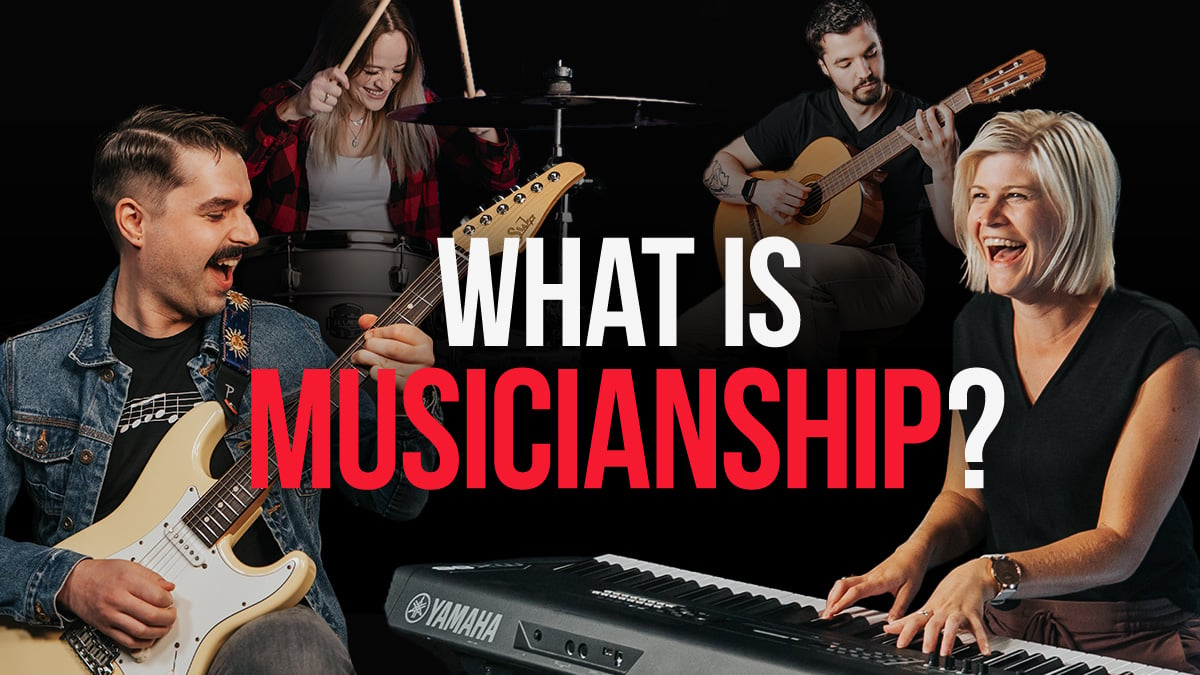
If you’ve spent any time reading this blog, first of all, thank you for reading! Secondly, you may have noticed a new category: musicianship. But what is musicianship?
Anyone can casually learn a piano tune if they’re told exactly which keys to play. But a musician goes beyond playing the notes. A musician adds their own interpretation using articulation and dynamics, builds upon an existing piece with improvisation, and uses their music literacy to communicate with and play with other musicians. This is called musicianship.
In this post, we’ll explore what musicianship means and how you can develop your musicianship skills, such as:
Subscribe to The Note for exclusive interviews, fascinating articles, and inspiring lessons delivered straight to your inbox. Unsubscribe at any time.
Most people don’t (and won’t) develop perfect pitch. But we can train our ears to the point where we can:
How do we get better ears? Through practice!
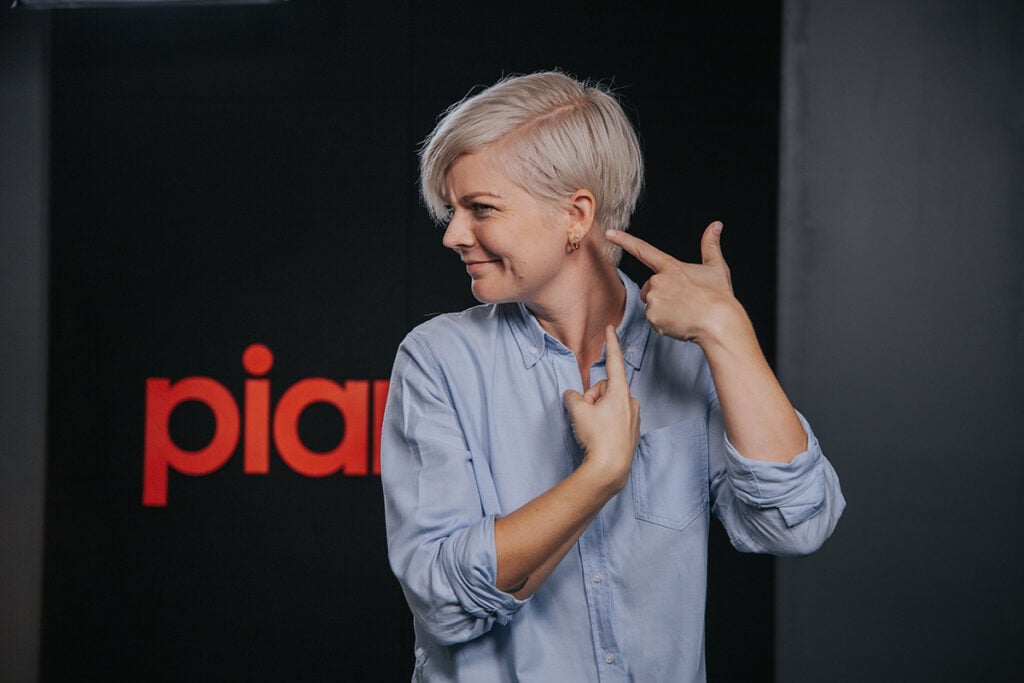
This is a fundamental skill and not too difficult. Intervals are the relationships between two notes and have a distinct sound. A common way of learning intervals is by associating them with a popular song. For example, a perfect 5th is the first two notes of the Star Wars theme.
> Lesson: Interval Ear Training
You can use the same concept to identify chord progressions by ear. It’s a little harder because chords are less distinct than individual notes, but practice will help you improve. You can also associate progressions with songs with distinct sound. When listening to a chord progression, pay attention to the movement of the chords. Are we moving up or down? What is the quality of the chord? Does it have a “sad” minor sound or a jazzy 7th chord sound?
> Lesson: How to Identify Chords By Ear
Pick a slice of music that you really like (and it doesn’t have to be piano). Then try to play it by ear note for note. This is called transcribing.
If you need some extra support, listen to the song on YouTube and slow down the video by 0.5x or even 0.25x. And start with something simple, like a short guitar solo from a song you’ve listened to hundreds of times. You can even look up the key and the main progression first.
Keep practicing these skills—identifying intervals, chord progressions, and melodies by ear—and your hearing abilities will improve!
🎹 Is perfect pitch an unfair advantage? You might be envious of people with perfect pitch, an ability that can’t be trained in adults. But perfect pitch isn’t necessarily a superpower. There are some disadvantages: individuals without perfect pitch tend to be better at distinguishing pitch height and whether two melodies of different keys are identical. Perfect pitch also tends to deteriorate with age, which can make playing music more difficult.The piano is a somewhat lonely instrument, so it’s not unusual for pianists to lack experience playing with other musicians. But this is an extremely useful (and rewarding!) skill to hone. So don’t miss out on it!
Ideally, play with musicians who are around your level or a tiny bit more advanced. This will create more fun and less frustration. Slightly more advanced musicians can teach you new skills without being too intimidating.
Feeling safe is important when you’re first starting out and taking risks, so take some time to get to know the people you play with. Ideally, jam buddies are also buddies, but not everyone has musician friends. Online and local music communities are places to find your people, but it’s worth taking some time in the beginning of a relationship to just talk music, swap playlists, and suss out each other’s musical compatibility.
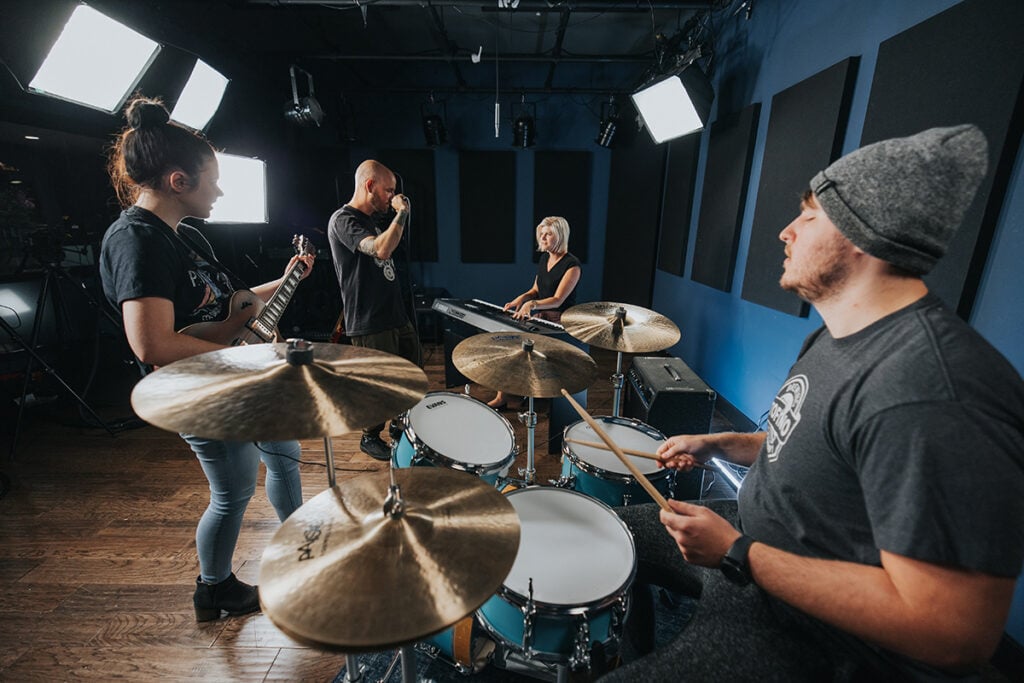
Learning how to play other instruments can open up opportunities for playing with others. Sometimes, people don’t need a pianist in their group but would really like to add a drummer, a bassist, or a saxophonist. Having a basic understanding of other musicians’ instruments will also help you be a more empathetic jam buddy in group sessions.
> 7 Reasons to Become a Multi-Instrumentalist
Now, when you sign up for Pianote, you’re no longer just a Pianote Member. You’re Musora Member! This means you’ll get access to Guitareo, Singeo, and Drumeo—our online music lesson platforms for the guitar, vocals, and drums.
LEARN MOREMusic is about expressing yourself. This doesn’t mean everyone needs to be a composer, but all musicians develop originality in their music-making. This includes interpreting a classic piece in a new way, improvising upon a given melody, arranging your own songs, or writing your own songs.
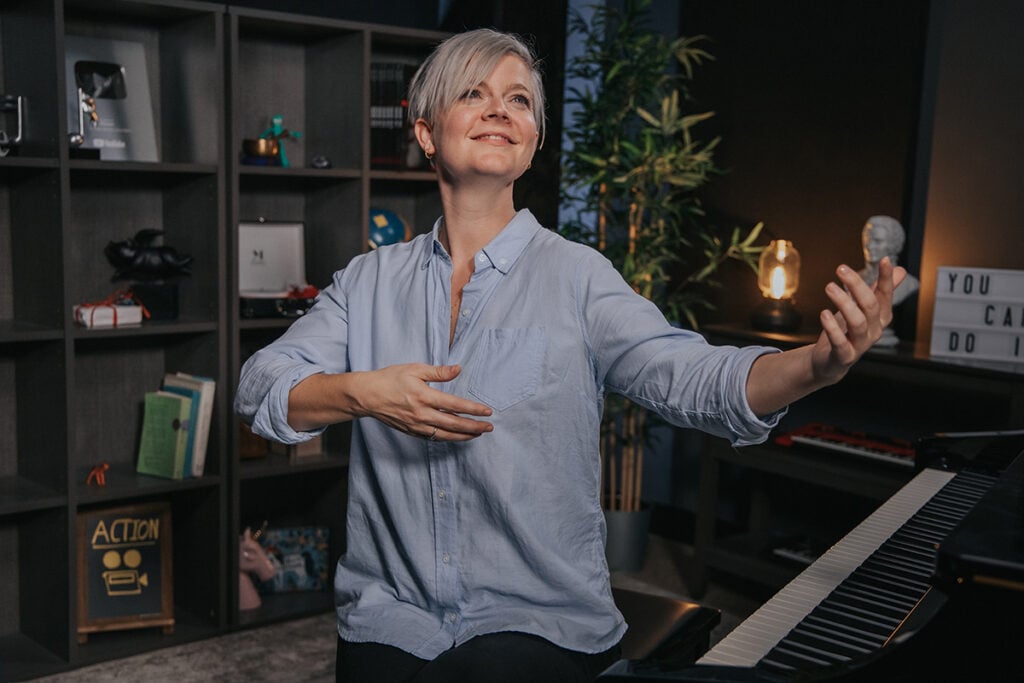
Classical piano doesn’t have many opportunities to arrange and improvise. But that doesn’t mean you shouldn’t be creative. The best classical pianists are not only technically proficient—they add a personal touch to their interpretations. This means perfecting tone, expression, dynamics, articulation, and all those details.
So, if you haven’t already, dive into the weeds! Mark up your sheet music with specific dynamics. Be intricate with your phrasing. Breathe with your music—that’s usually the key to producing a beautiful tone.
Our culture likes to think of being creative as something that’s inborn—you either have it or you don’t. But creativity is like a muscle: the more you exercise it, the stronger it gets.
Improvisation can feel scary to newcomers, especially classically trained piano players! If this is you, start with something simple. We have tons of beginner-friendly improv exercises that only require a simple progression and a handful of notes.
Now, this is important: improv doesn’t need to be fancy. Don’t feel pressured to play rapid scales right off the bat. In fact, doing so can sound messy. Just pick a few notes and experiment with different combinations of them.
> Beginner Improvisation Exercises
🎹 Constraints –> Creativity: Did you know that rules are actually good for creativity? If I tell you to “play whatever you want,” the sheer possibilities may be so overwhelming as to cause you to freeze! However, if I give you a few rules, such as “use a ii-V-I progression and the notes B, C, and G to improvise a melody,” you have more tools to work with. So, give yourself some constraints and you might be surprised by what you come up with within that framework!Being able to play one song multiple ways is an admirable skill and a mark of true musicianship. To do this, learn the key elements of styles you admire—chord extensions for jazz, “sway” rhythm for bossa nova—and incorporate them into your performances.
> 5 Styles of Twinkle Twinkle Little Star
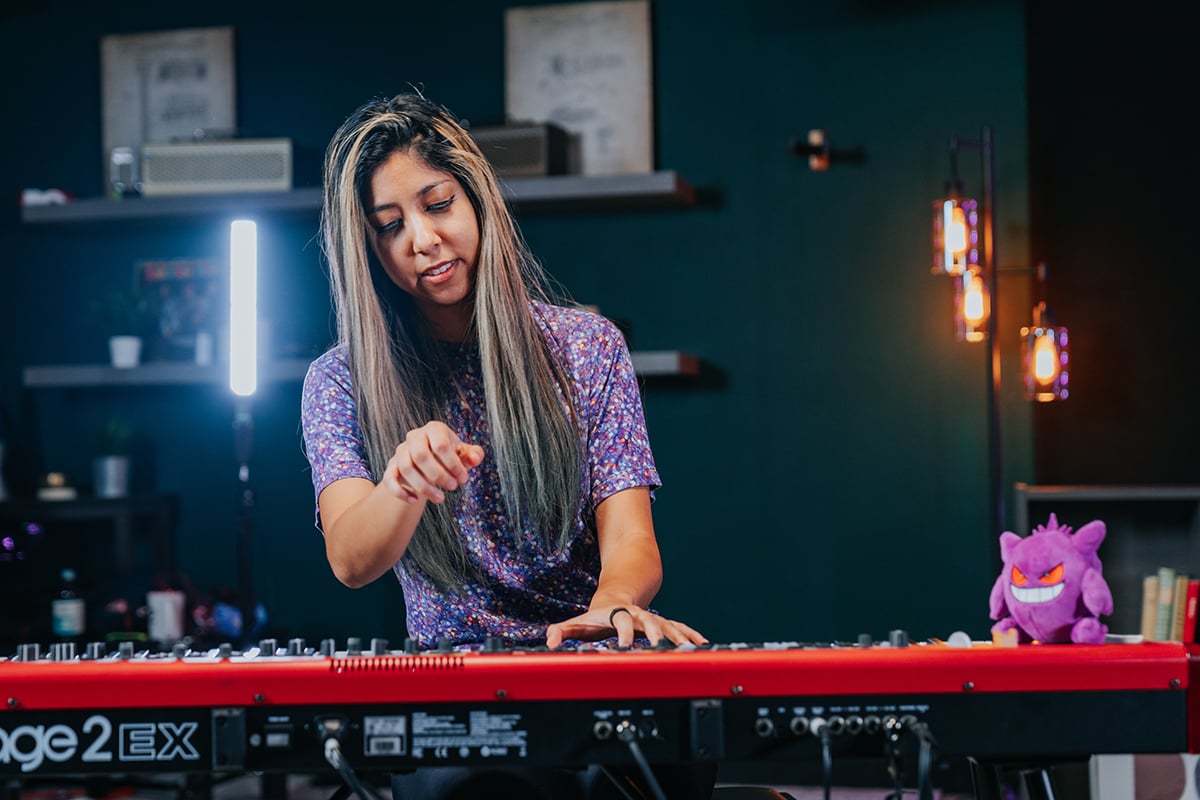
Pianote Members can learn the basics of arranging with our Creating the Perfect Piano Arrangement course with Summer Swee-Singh. If you’re not a Member yet, check out our Method, courses, and community with a free trial.
TRY PIANOTEPlaying music in the privacy of your own home can be rewarding, and if that’s all you want to do, that’s okay! But for many of us, we want to share the music we create. This means performing in front of other people.
If you feel anxious about performing, you’re not alone. After all, public speaking is a top phobia in America. But like other music skills, you can practice this and improve.
Don’t sign up for a concert hall performance in front of a hundred people right away. Start small…very small. Perform for one person whom you trust. Then, try playing for a few acquaintances. Then, branch off to small groups of strangers. Recording yourself is another way to practice performing under pressure.
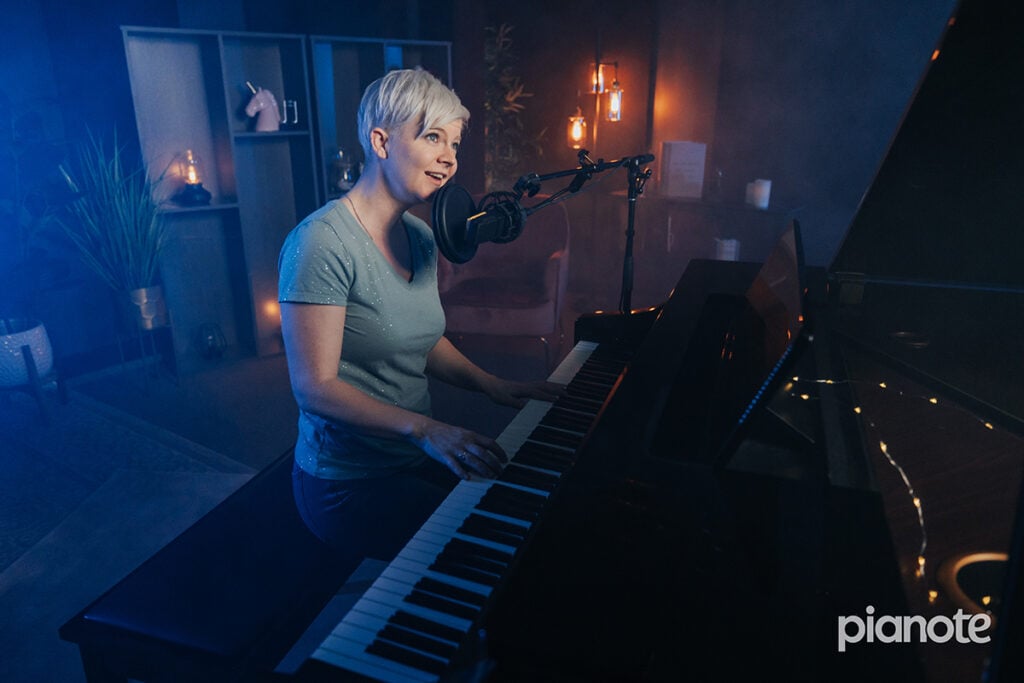
This article isn’t an exhaustive list of musicianship skills. Other skills you may want to explore include:
A big part of being a musician isn’t just making music, but listening. To become a well-rounded musician, listen to lots of music, read about music, learn the histories and biographies of your favorite albums and artists, and don’t be afraid to dive into genres outside your comfort zone. You can learn a lot about music from genres that seem completely unrelated. Even heavy metal can be beautiful.
Classical pianists: explore the historical contexts of the master composers. There’s a reason why Bach’s music was so ornamental, Mozart’s was simple, and Chopin’s was expressive. Each composer was influenced by the ideals of their time. This context will help you perform masterpieces the way the original composers intended.
Jazz pianists: you’re in luck because there are tons of recordings of the greatest jazz players. Listen and transcribe. Explore the theory behind jazz innovators like the harmonies of McCoy Tyner or the rhythms of Dave Brubeck.
Here are some neat articles that may help with widening your musical palate:
As a Pianote Member, you’ll get access to our 10-step Method, song library, and growing community of piano players just like you. Plus: get coached by world-class pianists and learn whenever you want, wherever you want, and whatever you want.
TRY PIANOTE FOR 7 DAYSCharmaine Li is a Vancouver writer who has played piano for over 20 years. She holds an Associate diploma (ARCT) from the Royal Conservatory of Music and loves writing about the ways in which music—and music learning—affects the human experience. Charmaine manages The Note. Learn more about Charmaine here.
/marketing/pianote/promos/april/banner-bg-m.webp)
We use cookies for traffic data and advertising. Cookie Policy »
/marketing/pianote/promos/april/banner-title.webp)